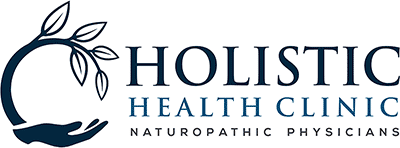What is coronavirus disease 2019 (COVID-19)?
- Coronavirus disease 2019 (COVID-19) is a respiratory disease caused by a new coronavirus that was first identified during an outbreak in Wuhan, China. It may have emerged from an animal source, but now it has reached a continuum of person-to-person spread. The virus is spread through respiratory droplets when an infected person coughs or sneezes and by touching an object with the virus on it and then touching your own mouth, nose, or eyes.
What are the symptoms of COVID-19?
- Symptoms may appear 2-14 days after exposure. Those infected with COVID-19 can have a range of symptoms including: fever, cough, shortness of breath, and, in severe cases, pneumonia. It begins like a common cold/flu, with heavy fatigue and upper respiratory irritation, inflammation, and mucus. It is soon followed by fever and a dry cough. Severe cases develop difficulty breathing, which is a medical emergency requiring a rapid response.
How can I prevent getting sick?
- There are two good ways: 1) stay strong with daily self-care, and 2) avoid being around others who are sick.
- Avoid crowded or poorly ventilated areas.
- Avoid touching your eyes, nose, and mouth with unwashed hands. Wash your hands often with soap and water for at least 20 seconds. Use an alcohol-based hand sanitizer (at least 60% alcohol) if soap and water are not available.
- If you are well, the CDC does not recommend that you wear a face mask to protect yourself.
- Routinely sanitize the knobs, handles and surfaces that you touch with an appropriate disinfectant.
If I’m sick, what should I do?
- You should stay home if you experience cold or flu-like symptoms and/or if you note unusual fatigue when you wake in the morning. Heavy fatigue is often the first sign of immune stress and reflects increased vulnerability to viral illness. Stay home until fatigue and the other illness symptoms have resolved.
- Be sure to frequently disinfect items you touch and cover your coughs or sneezes with a tissue or bent elbow.
- If you must be in public, wear a face mask.
- “Fasting” for a period of time can support the immune system. Acute illness can impair digestion, especially of meat and starches, and poorly digested foods can further burden your immune system. Consume only diluted juices (½ water) with sea salt to taste, or Recharge (natural alternative to Gatorade) and bone broth or meat stock with sea salt to taste.
- Continue to eat simply for 2 weeks during the recovery phase. You can then add in local fruits, cooked vegetables, rice, quinoa, sweet potato and beans or lean meats. It is best to avoid dairy, wheat, egg, corn, nightshades, banana, coffee, alcohol, chocolate, spicy foods, and sweets.
- Please be cautious and mindful when fasting. If your blood sugars drop too low or you feel otherwise unstable, increase meat broths, and add veggies and rice/quinoa/beans/sweet potato.
When should I go to the hospital or get tested?
- CDC recommendations: If you’ve had contact with a laboratory-confirmed COVID-19 patient, had a history of travel from the affected geographic areas, AND are having symptoms of fever, lethargy, dry cough, and shortness of breath, please go to the nearest Emergency Department. Do not go to any urgent care clinic or your primary care provider. Call the Emergency Department first to determine if they can accommodate you.
- Even without a known exposure, go to the Emergency Department if your fever exceeds 104 degrees Fahrenheit, or if you are having trouble breathing, or if you feel unsafe.
Is there treatment?
- There is no proven anti-COVID-19 medicine, however this natural immune support plan has been used to treat many other viral illnesses.
What supplies should I have on hand?
- Tissues, hand soap, hand sanitizer or wipes and face masks. Please do not stockpile supplies.
- Recharge, Pedialyte, Emergen-C packets, coconut water, natural juices, or other electrolyte replacements.
- Bone broth, local fresh fruits, greens, rice, quinoa, and starchy root vegetables.
Download our medical plan to deal with symptoms:


